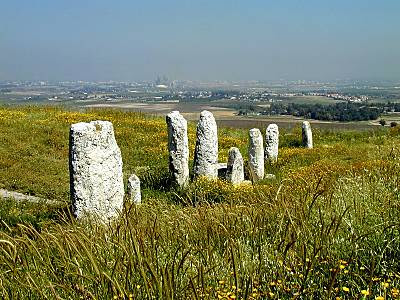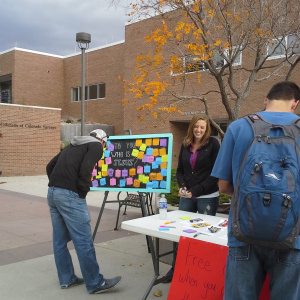Editorial Note: The following is reprinted with permission from Eleanor Skelton’s blog. It was originally published on April 5, 2015 as part of a series.
Continued from How You Can Help (Cynthia’s Thoughts)
When we started helping people move out, we learned that getting out and finding freedom is messy, and everyone’s situation is different.
When someone contacted us for help, we said that they went “active.” It’s like being on call for an emergency move 24/7.
They’ll tell us the situation is deteriorating, but we don’t know it’s going to happen until they call us, because we leave the choice up to them.
In summer 2013, when Homeschoolers Anonymous posted Eve Ettinger’s Call For Help: A Quiverfull / Patriarchy Rescue, I wrote in an email to our network: “I think she is the first of many.”
The backlash is one of the most difficult things we all faced in leaving our cult-like churches and controlling families.
One morning in my apartment, right after Racquel and Ashley left their church, the First United Pentecostal Church of Colorado Springs, Racquel’s phone rang. She stepped into the next room for a private discussion.
She came back out looking troubled.
Ashley asked what was wrong, and Racquel said Sister H. from Louisiana just called.
Racquel started crying.
“Sister H. told me that the pastor may be wrong, our parents may be wrong, but not to give up on the Pentecostal church. But I just can’t do it. I can’t.”
“Did anything like this happen to you when you left, Eleanor?” she asked.
Yes. Yes, it did.
One of the pastors and his wife at our old church in the Dallas Metroplex, Rockwall Bible Church, called me and tried to convince me to attend Bob Jones University.
They agreed with my pastor at Grace Bible Church in Colorado Springs and they said the only way to honor my parents was to do this one thing, to obey them.
My friend Anna G. called me a few weeks after I moved out. She said she’d gone back to the church. The assistant pastor and his wife asked her to step into their office after an evening church service and asked her about two of my Facebook posts that she’d liked and commented on.
One of my Facebook posts that she had liked was lyrics from a song called “Keep Your Eyes Open” by the contemporary Christian band NeedtoBreathe (and the assistant pastor and his wife believed all syncopated music was of Satan).
The other Facebook post was a link to a Tumblr blog called Hey Christian Girl, a collection of memes with cheesy, silly pick-up lines with Biblical allusions. They said didn’t see the humor, and they thought it was sacrilegious.
Anna also said the pastor and his wife asked her if she agreed with me moving out, if she’d aided me in leaving the cult. They told her that they didn’t want her to influence their children to move out without their approval.
I caught my breath. I could see it now.
They can’t stand to lose one of their own, because that’s losing a soldier to the culture wars. You take one step back from fundamentalist Christianity and now you’re one of the outsiders, one of the “lost” that they evangelize. And they need your soul.
So when I hugged Racquel while she sobbed, I could say, “Yes, this happened to me, too.”
This is why leaving these churches and these homes is leaving a cult. And this is what it’s like to walk beside abuse survivors in seeking freedom.
I’ve waited through months of watching and making preparations before helping someone leave. I keep an emergency cellphone with an unlisted number in case a controlling parent blocks someone from calling my regular cellphone. I’ve carried pepper spray, a stun gun and a small knife, all legal to carry on my college campus, so I can protect myself and those who ask for our help if a situation turns confrontational and violent.
Our network of friends discusses alternate scenarios, backup plans with people who are wanting to leave. We plan for the worst while hoping that one day this won’t be necessary.
Here’s we learned about helping people move out:
Take the essentials, but stay safe.
TESSA, a non-profit in Colorado Springs that offers advice and support to spousal domestic abuse survivors, has a checklist of what to take with you when you leave that we found helpful.
- Identifying documents
- Clothes to last a week
- Cash and bank information
- Keys to car and work
- Medications
- Important paperwork and records
- Personal items like photographs and jewelry
When Ashley moved out, five of us showed up because we knew her father was armed, he’d destroyed the inside of the car and the apartment, and we didn’t know when he’d return.
Later, I learned anyone who feels threatened can request police protection while moving their possessions.
Sometimes we left something behind we valued.
I couldn’t take my heirloom violin from the 1890s or one of our family dogs I’d bonded with. Ashley left her dog Sasha and her bed because we couldn’t fit it in the van, and Racquel sold her horse when later she couldn’t pay board and her own living expenses.
We lost diaries, mementos, and valuables.
We decided our freedom was worth losing those things or that lifestyle.
We realized the important thing was keeping ourselves safe and learning how to heal.

********
Shop at our Amazon store! As an Amazon Influencer, this website earns from qualifying purchases.











 I explained it to my friend Aaron, who recently wrote a blog series on
I explained it to my friend Aaron, who recently wrote a blog series on 
